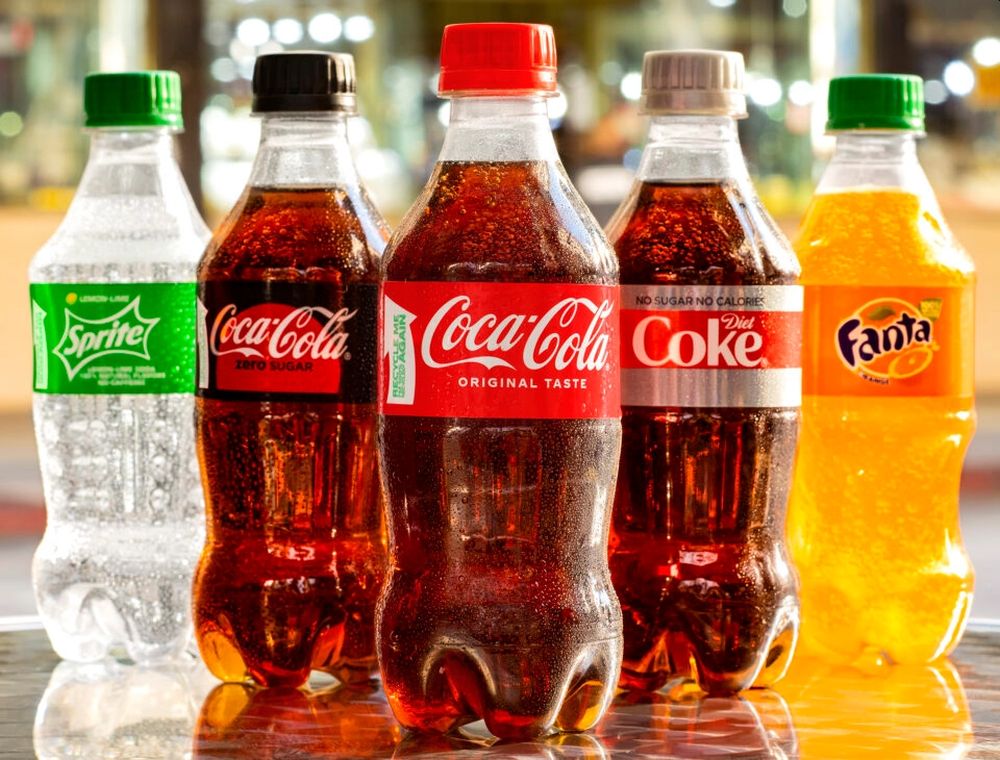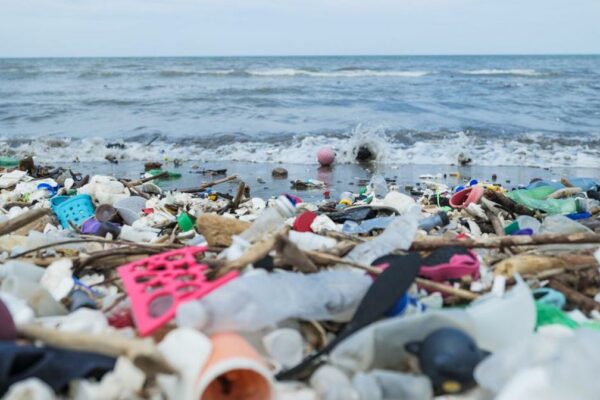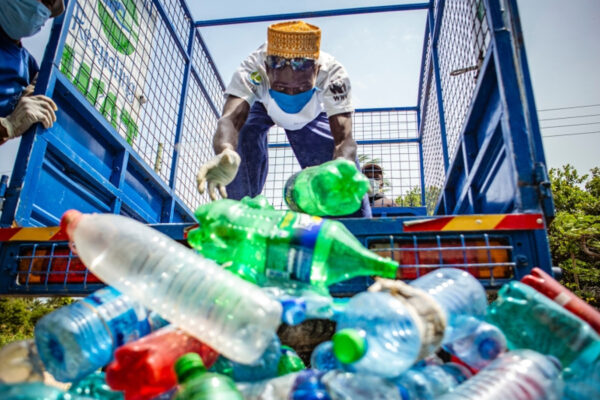Coca-Cola Releases New Bottle made with 100% Recycled Plastic
The beverage giant, Coca-Cola has been under the radar of environmentalists since the beginning of this century, who have been demanding the brand to reduce its plastic waste generation. While the company has made countless promises to the cause, it has failed to deliver on any of those promises and continued to work liberally with plastic.
Last year, a report found that Coca-Cola was the top corporate plastic polluter for the third year in a row, indicating that its products were found littered all across the globe. However, it seems that the company is finally trying to recycle its plastic waste. Coca-Cola has announced the release of a 13.2-ounce bottle that is made with 100 percent recycled PET (rPET) plastic.
Vows to Recycle More
The company said that the new bottles are the first-ever made with 100 percent rPET plastic in the US. Its Coke-label beverages and Sprite will be launched in California, Florida, and certain Northeast states this month and expand to other sparkling drinks in the summer.
In addition to the smaller 13.2-ounce bottles, the company will also introduce a traditional 20-ounce 100 percent rPET bottle for Coke brands in California, Texas, and New York this month. Its bottled water brand, DASANI, will follow with a 20-ounce rPET bottle in the same three states in March, while Smartwater will launch 20-ounce ePET bottles in New York and California in July. The company will switch all Sprite packaging to clear material, which is easier to recycle, by the end of 2022.
The company claims that these efforts would reduce its use of new plastic in North America by 20 percent compared to 2018 levels. They would also eliminate 10,000 metric tons of greenhouse gas emissions in the US every year, which would be equivalent to taking 2,120 cars off the road for a year.
Also Read: Big Brands Have Failed to Meet Sustainability Targets
Alpa Sutaria, the vice president and general manager for sustainability at Coca-Cola’s North America Operating Unit, said,
Challenges around plastic packaging waste and recycling continue to be top of mind for our consumers, customers, and our system. Introducing 100% recycled PET bottles is a big proof point of how recycling can help create a circular economy.
Coca-Cola has set a target to make 100 percent of its packaging recyclable by 2025, manufacture its bottles with 50 percent recyclable material by 2030, and collect and recycle the equivalent of a bottle or can for every beverage it sells by the same date. Presently, the brand offers 100 percent rPET bottles in over 25 markets, and more than 94 percent of its North American packaging is recyclable.
Too Little, Too Late
While some see this step as a positive change, many remain unimpressed, largely due to the track record of the company’s consistent environmental pollution. Established in the late 19th century, the multinational beverage company produces a gigantic amount of plastic waste, including over 3 million tons of plastic packaging and 110 billion plastic bottles each year. Unfortunately, the company has done almost nothing to amend its ways.

Coca-Cola introduces a new bottle made from recycled plastic | Image: Coca-Cola
After the company’s announcement, Greenpeace USA senior plastics campaigner Kate Melge said that in 1990, Coca-Cola and Pepsi revealed their plans to sell their products in recycled plastic bottles, but have remained unsuccessful so far. She further added that after thirty years of that announcement, companies should not still be boasting about transitioning to recycled content.
Over a year ago, the company’s global chief executive admitted that Coca-Cola has no plans to reduce its plastic usage for its bottled beverage range. Apparently, the head of sustainability Bea Perez at the World Economic Forum had said that they will continue to use plastic, claiming that “customers like them because they reseal and are lightweight.”
Many environmental organizations have argued that recycling is not an eco-friendly and permanent solution to the plastic pollution crisis. Moreover, less than 20 percent of the plastic used in eth US is actually recycled, and more than half is shipped abroad, often to poor and developing countries that struggle to manage it effectively.
This move poses a very serious question of “is it enough to recycle plastic waste to eradicate the plastic crisis?” Although it doesn’t do much for the environment and is not very helpful, big brands have promoted recycling to avoid criticism, rather than opting for sustainable and environmentally-friendly manufacturing practices.


